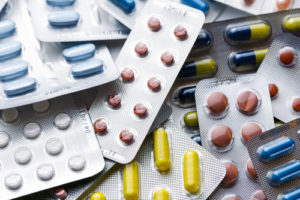When a Gift is Not a Gift: Pharma Companies Use Charities to Increase Drug Profits

Imagine if at the end of Charles Dickens’ “A Christmas Carol,” Ebenezer Scrooge announced that he was giving the prize turkey to the Cratchit family for Christmas dinner, but that this “gift” was conditional upon Bob Cratchit agreeing to work even longer hours in the new year, the turkey being cooked in a certain way, and only certain family members eating it. Would we consider Scrooge to have been truly converted by his encounter with the three ghosts the night before? Of course not. We only know Scrooge has undergone a genuine transformation from a selfish tyrant to a sincere benefactor because his gift was unconditional, no strings attached.
In the past year, supposed “gifts” by pharmaceutical companies to charitable foundations that help patients pay for expensive drug treatments — sometimes called “patient assistance programs” (PAPs) — have come under increasing scrutiny by federal prosecutors for attaching these kinds of strings. Most recently, on December 6, 2018, the U.S. Department of Justice announced that Actelion Pharmaceuticals US, Inc., had agreed to pay $360 million to settle allegations under the False Claims Act that it had illegally induced patients to purchase its drugs for a life-threatening condition called pulmonary arterial hypertension (PAH) by using a charitable foundation “as a conduit to pay the copays of thousands of Medicare patients.” DOJ further alleged that Actelion exerted control over the foundation by obtaining data from the foundation detailing how much the foundation had spent for patients with PAH on its drugs, and then using this information to decide how much to donate to the foundation, limiting the donation amount to cover the copays of only those patients taking its drugs. In addition, DOJ alleged that Actelion did not allow patients with PAH to participate in the company’s separate free drug program if they were Medicare beneficiaries, even if they could not afford the drugs. Instead, Medicare beneficiaries were referred to the foundation for copay assistance, thereby increasing Actelion’s revenue from these patients.
DOJ’s announcement of the resolution of its claims against Actelion follows False Claims Act settlements with five other pharmaceutical companies in the past fifteen months for similar conduct. These prior settlements involved Aegerion Pharmaceuticals ($35 million), United Therapeutics Corp. ($210 million), Jazz Pharmaceuticals ($57 million), Pfizer, Inc. ($23.8 million), and Lundbeck LLC ($52.6 million). Based on SEC filings, a number of other pharmaceutical companies and patient assistance programs have received DOJ subpoenas and are currently under investigation.
The Government’s underlying concern in each of these cases appears to be that pharmaceutical companies are doing an end-run around longstanding restrictions under the Anti-Kickback Statute on gifts to patients and physicians by making donations to third-parties instead — the patient assistance programs — but with the same nefarious intent: inducing the sale of the companies’ federally reimbursable prescription drugs. Tell-tale signs of this intent include when a pharmaceutical company makes a donation to a patient assistance program conditional upon receiving data that reveals whether all and only patients using the company’s drugs are receiving copay assistance. Likewise, illegal intent is revealed when a patient assistance program attempts to please donors by narrowly restricting the scope of its copay assistance to particular drugs or diseases, or by limiting patient eligibility.
As highlighted in guidance issued by HHS OIG in 2005 and 2014, the effect of these marketing practices is to steer patients toward particular drug treatments, namely, the most expensive drugs sold by the companies themselves, even when less expensive and potentially more effective treatments are available. These practices also artificially inflate drug prices, thereby increasing costs both to federal programs and individual patients who are not fortunate enough to receive assistance. For example, in its recent FCA settlement with Actelion, DOJ alleges that, between 2014 and 2015, at the same time Actelion was making donations to a patient assistance program, the company raised the price of its main PAH drug by nearly thirty times the rate of overall inflation in the U.S. Medicare absorbed this cost increase for beneficiaries who did not receive free drugs, as it did for the drugs sold by the other pharmaceutical companies that have now entered into FCA settlements.
Unlike Scrooge, who finally changed his selfish ways, pharmaceutical companies appear not to have learned their lesson from the HHS OIG guidance issued in 2005 and 2014. They have continued to make their cash gifts to PAPs conditional on getting something in return: influence or control over which patients receive copay assistance, and how much. In doing so, pharmaceutical companies seek profits from the neediest of patients, influence physician treatment decisions, and artificially inflate prescription drug prices. In the coming year, we can expect that they will continue to pay a price for these types of marketing transgressions, particularly if whistleblowers with knowledge of their illegal practices come forward to point the way.
Read More:
- Pharmaceutical Fraud
- The Anti-Kickback Statute
- False Claims Act
- How Copayment Waivers Can Give Rise to a Whistleblower Claim
Tagged in: Anti-Kickback and Stark, FCA Federal, Pharma Fraud,